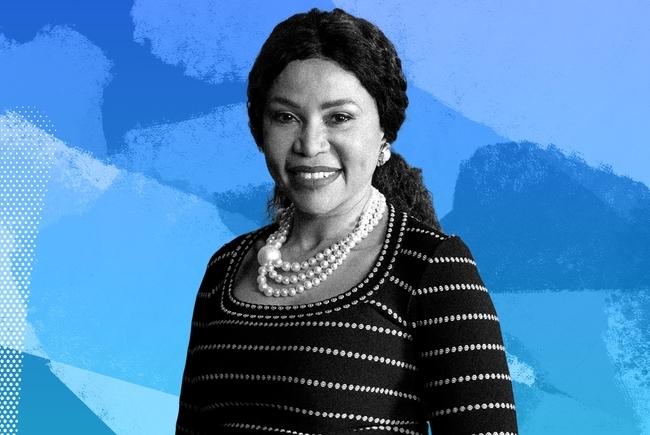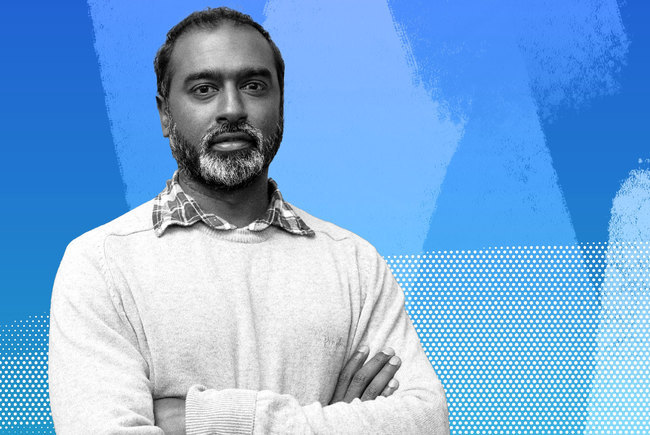Research and Internationalisation
27 September 2024 Read time >10 min.
In a world whose future relies increasingly on international co-operation and global thinking, developing and maintaining strong partnerships with institutions in other countries can be a game changer for research that addresses the wicked problems that have become household words in the last few years. Climate change, poverty and inequality, hunger, gender-based violence, pandemics, war and human displacement are just a few of the sad realities around the globe.
At the University of Cape Town (UCT) we are not only seeking to address these needs through socially responsive research, but we are also opening up new channels for African knowledge to contribute to global programmes such as meeting the Sustainable Development Goals of the United Nations and the Millennium Development Goals of the African Union.
In October 2023, for instance, we celebrated the return of UCT Press to UCT Libraries, with the aim of creating a platform specifically for African voices in global academia. This new publishing model will take back our scholarship from commercial entities and make it accessible to all Africans who have access to the internet.
To advance and uphold Africa’s contribution to global knowledge production, UCT became one of the co-authors of the Africa Charter for Transformative Research Collaborations, which was launched in July 2023 at a meeting of the Association of African Universities Conference for Rectors, Vice-Chancellors and Principals of African Universities in Namibia. As a demonstration of how strongly the need for such a charter is felt, about 86 participants signed up for the Charter at the conference. UCT and our co-authors, Bristol University in the United Kingdom (UK) and the University of South Africa (UNISA), hosted a joint workshop on the charter at the Times Higher Education meeting in Sydney in September 2023. UCT currently hosts the secretariat for this initiative.
The Research and Internationalisation portfolio enlarged UCT’s international footprint during 2023. We finalised new memoranda of understanding with Sheffield University in the UK and Sun-Yat Sen University in China. We began developing an agreement for joint taught master’s programmes with Sciences Po in France and renewing our joint PhD agreements with Groningen University in the Netherlands and Bristol University. And we renewed our agreement with China on the Confucius Institute – a non-profit public institute, based in Beijing, that promotes Chinese language and culture throughout the world.
Partnerships like these provide benefits for everyone concerned. Students and academics from different countries learn about the wide range of needs that are addressed by African science at UCT. They benefit from being able to use the gateway UCT provides into the different cultures and communities of this continent. At the same time, researchers at UCT develop critical relationships with counterparts around the world. These often provide long-term benefits to everyone involved. They are especially useful in helping young researchers to gain traction in the international community, where they can gain experience which they can later apply to their work back in Africa.
These are just a few highlights of UCT’s Research and Internationalisation portfolio in 2023. Ofcourse, UCT’s ability to attract prestigious partnerships and to help steer the growth of science across the continent is a direct result of the hard work of my colleagues in the labs and classrooms. I thank each of them for helping to keep UCT on a path of distinction and influence in the world of higher education.
Sincerely,
Professor Jeff Murugan
Acting Deputy Vice-Chancellor Research & Internationalisation
SALDRU concludes large-scale research project on the state of SA
The conclusion of the Research Project on Employment, Income Distribution and Inclusive Growth (REDI3X3) – a large-scale, multi-year research undertaking led by the University of Cape Town’s (UCT) Southern Africa Labour and Development Research Unit (SALDRU) – provides an in-depth analysis of some of South Africa’s most pressing challenges; and how to fix them. The project got under way in 2012, and the results have now been published in hard copy in a book titled: A Measurement of Our Ills – and How We Might Fix Them. Authored by SALDRU’s Pippa Green, the book was officially launched on Friday, 27 January, at UCT’s School of Economics.
Long in the tooth: Ancient proteins illuminate deep-time species evolution
Standing up to 3 m tall and weighing up to 600 kg, illustrations of the massive primate Gigantopithecus blacki call to mind the mythical Himalayan Yeti. Dental remains of the prehistoric ape, which lived in the tropical forests of south China, have been dated to 1.8 million years ago, and scientists now know they were ancient relatives of modern-day orangutans. This is thanks to advances in palaeoproteomics, keys to a vault of significant palaeontological data. Broadly, palaeoproteomics is the study of ancient proteins. These are ‘mined’ from mineralised fossil remains such as bone, teeth, and eggshell. And the example of Gigantopithecus blacki was one of several presented at a public seminar titled “Reconstructing Deep-Time Evolution Using Palaeoproteomics”.
UCT law academics lead a new global innovation research project
“Ensuring healthy lives and promoting well-being at all ages is essential to sustainable development” – this is Sustainable Development Goal (SDG) 3. This goal, along with other SDGs, is the focus of a newly funded collaborative Open AIR research project which has just been awarded significant support by the International Development Research Centre (IDRC) of US$2 million to investigate the regulatory environments for innovation in healthcare, data governance, food security, and green technologies. Titled “Regulation for Innovation: Inclusive and Sustainable Knowledge Governance in Lower-income Countries”, the project runs for three years from March 2023 to June 2026. Open AIR’s research has already confirmed that current regulatory systems – including intellectual property (IP) laws – often inhibit innovation and create and sustain severe access inequalities, eg, with regards to life-saving drugs and vaccines. This new research project seeks to improve regulatory systems across Africa and provide solutions to achieving several SDGs, such as better access to vaccines and essential medicines; the development and deployment of clean technologies for environmental sustainability; digital and data-driven agriculture for food security; and equitable access to research materials for quality education.
The Crick Africa Network (CAN) is set to extend for a further five years, supporting more young African scientists to build their careers in research, thanks to a £7.5 million investment from LifeArc, the self-funded charitable medical research organisation. CAN, supported by LifeArc, will offer career accelerator fellowships for postdoctoral biomedical researchers to develop their research into translational scientific programmes and to become independent scientists, building their careers on the African continent. Jean Langhorne, the director of CAN, said: “Low- and middle-income countries face the biggest threats from infectious disease, climate change and related health impacts. However, their scientists, who are best placed to pose and answer the right research questions, often lack the resources and connections. We are committed to redressing this imbalance and creating equitable partnerships with scientists in Africa.”
Study uncovers why detecting depression, anxiety and domestic violence in pregnant women is limited
Lack of confidentiality and feelings of shame related to experiences of domestic violence as well as service providers' discomfort in dealing with mental health issues were some of the reasons why detecting symptoms of depression, anxiety and experiences of domestic violence in Cape Town’s pregnant women is limited. Other factors revealed by the University of Cape Town (UCT) study, titled “Facilitators and barriers to detection and treatment of depression, anxiety and experiences of domestic violence in pregnant women” – recently published in Scientific Reports – were service providers’ limited time available and heavy patient load. Common mental disorders (CMDs), such as depression and anxiety, are highly prevalent during the perinatal period, with low- and middle-income countries (LMIC) carrying the greatest burden. It is estimated that in LMIC, 18% of perinatal women experience depression and 34% experience anxiety. In South Africa, the prevalence of depressive symptoms during pregnancy ranges between 27% and 39%, while symptoms of anxiety range between 15% and 23%.
Meet UCT’s SDG postdoctoral research fellows
“Transdisciplinary boundary breakers” best describes the six African Sustainable Development Goals (SDGs) postdoctoral research fellows appointed by the University of Cape Town (UCT) following the International Summit on the Sustainable Development Goals in Africa, hosted at UCT in 2021.
A seventh SDG postdoctoral research fellow is yet to be appointed.
In the current cohort are:
- Dr Hafte Gebrihet (Ethiopia)
- Dr Cecilia Ojemaye (Nigeria)
- Dr Solomon Uhunamure (Nigeria)
- Dr Azza Ahmed (Sudan)
- Dr Fabio Andrés Díaz Pabón (Colombia)
- Dr heeten bhagat (Zimbabwe)
Based in UCT’s various faculties, each of the fellows is working on transdisciplinary, collaborative research projects that accelerate African-led initiatives that support the United Nations’ (UN) SDGs, as well as the African Union’s Agenda 2063.
Pleasure activist receives prestigious fellowship
Thanks to her unique research on the subjective meanings of sex, sexuality, and sexual pleasure, Kylie Marais has earned an international Pleasure Fellowship – making her one of only 16 scholars from around the world to receive this prestigious fellowship this year. Marais is a PhD candidate in the University of Cape Town’s (UCT) Department of Anthropology. Her doctoral research focuses on the sexual subjectivities of several contemporary, self-identified coloured women from Cape Town. As part of her study, she conducted intimate interviews with 15 women on their individual meanings of sex, sexuality, and sexual pleasure. This work has paved the way for this fellowship opportunity.
Blue skies: UCT SARChI Chair leading in the global aviation industry
Professor Arnaud Malan and his team use computational fluid dynamics (CFD) to support Airbus in their aircraft design. But CFD has wide applications and potential to grow the manufacturing industry in South Africa and decarbonise the aviation industry. If you find yourself traveling on an aircraft built by Airbus, chances are good that the airplane was designed using software from the University of Cape Town (UCT). Professor Malan is South African Research Chair (SARChI) in Industry Computational Fluid Dynamics based in the Mechanical Engineering Department at the Faculty of Engineering & the Built Environment. His group has been working on CFD and its application in the aerospace industry. They use applied mathematics and computational modeling to simulate aircraft design.
Framing a decolonial view of knowledge and information stewardship
Professor Jaya Raju’s scholarship journey has culminated in a need to question western, dominant epistemology used in research and especially that which involves local and indigenous communities. This Professor Raju professed during her recent inaugural lecture, titled “Leading a ‘decolonial turn’ in research methodology from a knowledge and information stewardship perspective” held on Wednesday, 18 October, at the University of Cape Town’s (UCT) Chris Hani Lecture Theatre. “The discipline of knowledge and information stewardship is there to encapsulate robust, critical and responsible curation of data, information and knowledge which are entrusted into the custodianship of this discipline; a diversity of information that goes beyond libraries and memory institutions,” Raju explained. “The revolution of this discipline is evidenced here at UCT with its libraries; with scholarly communication initiatives such as open access as a public good in its various iterations, hosting a continental platform for African open access publishing within a social justice framework, creative research landscape analysis services for collaboration and other research opportunities.”
Environmental sustainability on the mind as all-women voyage sails to Antarctica
A group of 188 women from across the globe will take an odyssey to Antarctica in November to promote the long-term sustainability of the planet as part of a science, technology, engineering, mathematics, and medicine (STEMM) initiative. The women hail from 25 countries and will depart in two groups, and the University of Cape Town’s (UCT) director of the African Climate and Development Initiative (ACDI), Professor Gina Ziervogel, will also be setting sail. Her interest in the mission comes from completing her PhD in geography. She explained that her study looked at small-scale farmers in Lesotho and how they use climate forecasts, then worked in urban areas with people and how they adapt to climate impacts. “I work on climate change too and, essentially, we are looking at how to reduce climate impact on people and environments. The opportunity to have a personal experience and reflect on my leadership and how I can contribute to sustainability is important,” Professor Ziervogel said.
 This work is licensed under a Creative Commons Attribution-NoDerivatives 4.0 International License.
This work is licensed under a Creative Commons Attribution-NoDerivatives 4.0 International License.
Please view the republishing articles page for more information.
Annual reviews
Year in Review 2023
27 Sep 2024
Year in Review 2023

There are different ways to define the University of Cape Town (UCT).
27 Sep 2024 - 2 min read
By its very nature, the university sector is a place of transition.
27 Sep 2024 - 4 min read
In a world whose future relies increasingly on international co-operation and global thinking, developing and maintaining strong partnerships with institutions in other countries can be a game changer for research that addresses the wicked problems that have become household words in the last few years.
27 Sep 2024 - >10 min read
Previous Editions



























